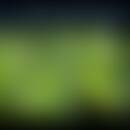Synonym(s)
DefinitionThis section has been translated automatically.
Lemon balm or lemon balm (Melissa officinalis) is a perennial herb with a branched, square stem that grows up to 80 cm tall and smells of lemon. Melissa belongs to the Lamiaceae family with serrated leaves and blue-yellow to white flowers. It flowers from June to August.
Lemon balm is the parent plant of the officinal herbs used in natural medicine (DAB9, ÖAB90, Ph.Helv.7):
- Melissae folium, lemon balm leaves, (extract from the dried leaves) and
- Melissae aetherolum the melissa oil (obtained by steam distillation from leaves and flowering shoot tips)
Cosmetically:
- Melissa oil is used under the INCI designation"Melissa offcinalis oil INCI".
- Melissa oficinalis etract (INCI) is the extract from the dried leaves
- Melissa offcinalis distillate (INCI) is the aqueous solution
- Melissa officinalis seed oil is the seed oil of lemon balm
Spectrum of actionThis section has been translated automatically.
Lemon balm leaves contain hydroxycinnamic acid derivatives, especially rosemary acid, caffeic acid and chlorogenic acid. Essential oils contain mainly (up to 70%) citral, citronellal, linalool, geraniol, tannins and bitter substances as well as other components.
You might also be interested in
Field of application/useThis section has been translated automatically.
The lemon balm is used as a spice, medicinal plant and as a liqueur and tea. Baths are recommended for inflammations of the skin. Due to the content of rosemary acid, extracts from lemon balm leaves have an antimicrobial and antiviral effect. Good results ( LOE-A= level of evidence - A) were described in a randomized, double-blind, placebo-controlled clinical study on 66 patients with a lemon balm cream (4 times/day for 5 days) in the case of ( Herpes simplex) (see below phytotherapy).
Note(s)This section has been translated automatically.
"Melissa spirit" is a mixed alcoholic distillate of lemon balm leaves, orange peel, ginger root, cloves, cinnamon bark, angelica root and other drugs, prepared in alcohol and then distilled.
Klosterfrau Melissengeist, combined from 13 medicinal plants(lemon balm leaves, alanthus rhizome, angelica rhizome, ginger rhizome, cloves, galangal rhizome, black pepper fruit, gentian root, muscat seeds, bitter orange peel, cinnamon bark, cinnamon blossoms, cardamom seeds) and 79 vol.% alcohol, has been used since 1826 for colds, inner restlessness, insomnia, nervousness, gastrointestinal complaints, weather sensitivity and muscle complaints.
LiteratureThis section has been translated automatically.
- Koytchev R et al (1999) Balm mint extract (Lo-701) for topical treatment of recurring herpes labialis. Phytomedicine 6: 225-230
- https://arzneipflanzenlexikon.info/melisse.php.
- Wenigmann M. (2017) Phytotherapy medicinal drugs, phytopharmaceuticals, application. Urban & Fischer, pp. 159-160
- https://pflanzen.fnr.de/industrialplants/arzneipflanzen/pflanzen-datenbank.




